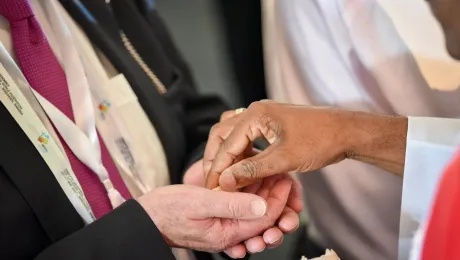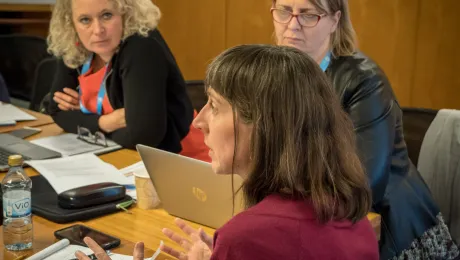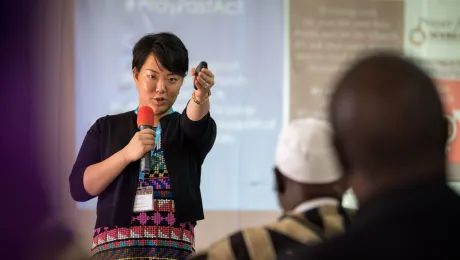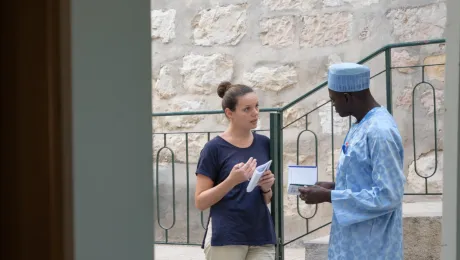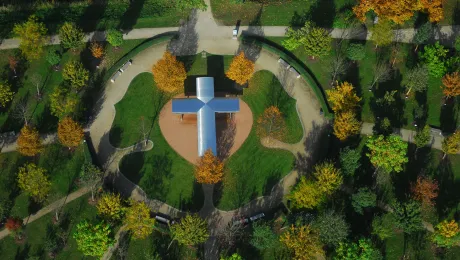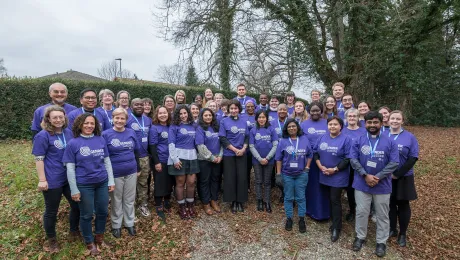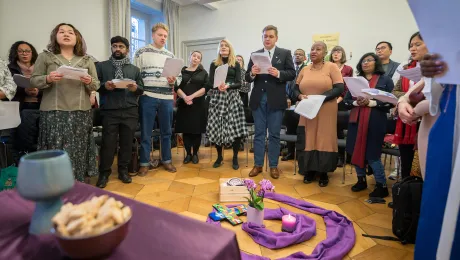Working towards gender justice and women’s empowerment in church and society
Gender Justice is rooted in the theological concept that all people are created in God's image as equal in rights and dignity.
Empowering women to enjoy full rights, participation and leadership at all levels within their churches and within wider society is an essential part of our vision.
We support the work of women theologians and ordained ministers, especially where their contribution is not recognized or encouraged.
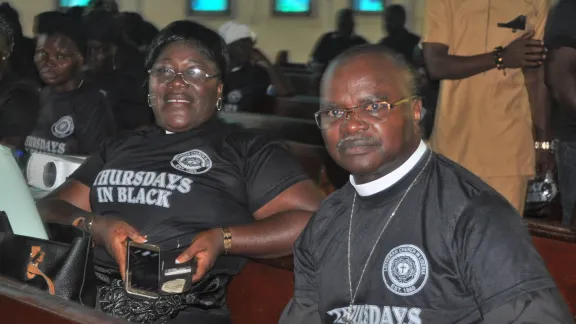
Rev. Janice Fajue Gonoe, Director of the Lutheran Church in Liberia HIV and AIDS program and Bishop Dr Jensen Seyenkulo of the Lutheran Church in Liberia await the start of the Thursdays in Black launch program. Photo: LCL/ Linda Johnson Seyenkulo
- Gender Justice and Women’s Empowerment networks ¶
- Women’s Human Rights ¶
- Transformative masculinities ¶
- Her-stories ¶
- Get involved ¶
- Partners ¶
We work through regional networks of women officially designated as contacts for their member churches.
They define regional priorities in line with our broad objectives of mainstreaming gender justice at every level of the design, implementation, monitoring and evaluation of policies and programs.
The networks include lay and ordained women who work to make women’s theological reflection more visible in their churches and within the wider communion.
We work with LWF’s Action for Justice Unit to address systems or situations of injustice and violence against women and girls. Standing together for gender justice is essential to who we are as a communion of churches. Be it from the pulpit, in our decision-making bodies or in the gender balance of programs, for LWF being vocal and proactive in ensuring the respect of women’s human rights is indivisible from the understanding of justice in its biblical sense.
Our efforts focus concretely on:
- The role of faith communities in ending harmful practices for women and girls, such as child marriage and female genital mutilation;
- Collaboration with the United Nations and Civil Society Organizations to overcome gender discrimination and gender-based violence;
- The empowerment of women through the knowledge of their rights and the support to women’s networks to interact with governmental and non-governmental stakeholders through the use of UN mechanisms.
- Deepening biblical and theological reflection within our churches and other faith communities to ensure that religion is not used to justify the abuse of power against women and girls or to justify gender imbalances.
Launched through a series of three webinars in 2020, LWF began a new initiative to explore ways of transforming models of masculinity. Entitled “Being (hu)man in a world of violence,” the initiative is pioneered by the Lutheran World Federation (LWF), the World Communion of Reformed Churches (WCRC), ACT Alliance and the South Africa based Sonke Gender Justice network. Its goal is to work with faith leaders and train regional practitioners to facilitate spaces of dialogue, root out gender violence and engage men and boys in the task of promoting gender justice.
Webinar 1: Masculinities in the church
- Speakers
- Rev. Bafana Khumalo, Sonke Gender Justice
- Rev. Dr Philip Peacock, World Communion of Reformed Churches
- Rev. Dr Chad Rimmer, Lutheran World Federation
Webinar 2: Masculinities engaging feminism
- Speakers
- Rev. Dr Monica Melanchthon
Webinar 3: Engaging men and boys for positive masculinity and gender justice
- Speakers
- Professor Ezra Chitando
Our women’s networks are uncovering the stories of women who played important roles during the Reformation or in the years since then. We want to get to know these “forgotten” women, who have been agents for change and renewal in their communities.
- Contact country or regional coordinators to learn about WICAS activities
- Follow LWF Women on the Move on Facebook
- Join the regional WICAS groups on Facebook
- Join the Women on the Move Network on Facebook
- Young Women Christian Association
- World Council of Churches
- Church of Sweden
- Finn Church Aid
- Mission 21
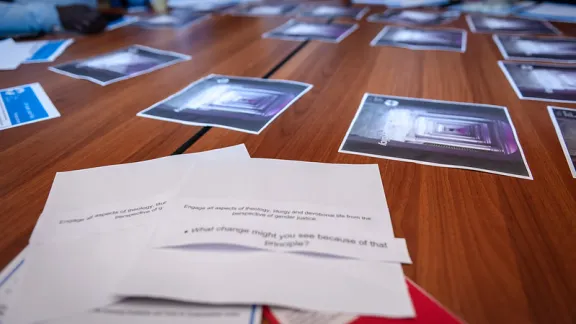
LWF Communion Office staff marked the 2019 International Women’s Day by taking part in activities on gender justice. This included quizzes, book presentations and reflections from General Secretary Rev. Dr Martin Junge. Photo: LWF/S. Gallay
Contact
Get Involved
Share with us your stories, photographs and insights using the #LWF

